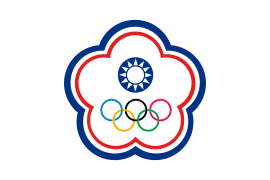2018 KPIT MSLTA Challenger
The 2018 KPIT MSLTA Challenger was a professional tennis tournament played on hard courts. It was the fifth edition of the tournament which was part of the 2018 ATP Challenger Tour. It took place in Pune, India from 19 to 24 November 2018.
| 2018 KPIT MSLTA Challenger | |
|---|---|
| Date | 19 – 24 November |
| Edition | 5th |
| Draw | 32S / 16D |
| Surface | Hard |
| Location | Shree Shiv Chhatrapati Sports Complex, Pune, India |
| Champions | |
| Singles | |
| Doubles | |
Singles main draw entrants
Seeds
| Country | Player | Rank1 | Seed |
|---|---|---|---|
| Radu Albot | 101 | 1 | |
| Ramkumar Ramanathan | 124 | 2 | |
| Elias Ymer | 132 | 3 | |
| Prajnesh Gunneswaran | 144 | 4 | |
| Marc Polmans | 145 | 5 | |
| Jay Clarke | 174 | 6 | |
| Andrej Martin | 189 | 7 | |
| James Ward | 199 | 8 |
- 1 Rankings are as of 12 November 2018.
Other Entrants
The following players received wildcards into the singles main draw:




The following player received entry into the singles main draw as a special exempt:
The following player received entry into the singles main draw as an alternate:
The following players received entry from the qualifying draw:




The following player received entry as a lucky loser:
Champions
Singles


Doubles




gollark: I don't like them *in general*, but their CPU design team does very impressive work.
gollark: It seems like an entirely insignificant problem.
gollark: That existed for ages. It's fine. The cable has to advertise support somehow.
gollark: That was available as an alternate mode anyway.
gollark: Which is arguably bad because of horrible security issues
This article is issued from Wikipedia. The text is licensed under Creative Commons - Attribution - Sharealike. Additional terms may apply for the media files.